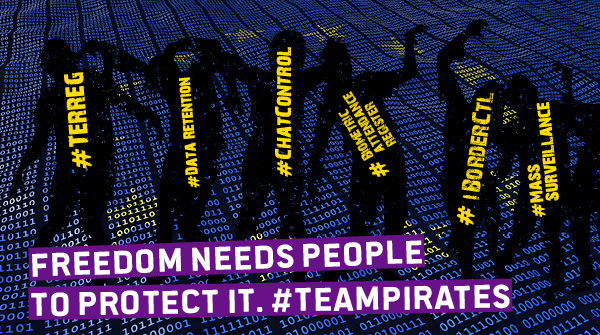EU citizens oppose foreign anti-terror Internet censorship
A large majority of EU citizens oppose EU plans to establish transnational anti-terror Internet censorship. This is the result of a YouGov opinion poll among 10,214 citizens from 10 EU countries.
Only 30% of respondents support the plans by EU Commission and EU governments to have Internet publications in their country checked for “terrorist content” by authorities in all 27 EU states in the future and order their removal. 51% of respondents want only public authorities or courts of their own country to decide on the legality of Internet publications in that country. The European Parliament is arguing for this position in the ongoing negotiations.
Critics fear that foreign governments such as in Hungary could classify legal but politically inconvenient publications as “terrorism” and order their removal. Each EU country uses its own list of “terrorist organisations”. For example, Spain considers parts of [inserted on 08/09/2020] the Catalan independence movement to constitute terrorism. In 2019 French authorities requested the deletion of hundreds of Internet sites that did not relate to terrorism at all, including cartoons, scientific publications, government publications and information on veganism.
The negotiations on the proposed EU regulation on the prevention of terrorist content online (TCO)
The EU is currently negotiating a regulation to prevent the dissemination of terrorist content in the Internet. To this end EU Commission and EU governments want upload filters and ultra-fast cross-border removal orders to be used. Even after the French Constitutional Court declared a similar law unconstitutional, the Swedish EU Home Affairs Commissioner Johansson and the German Council Presidency are insisting on the controversial mechanisms. In order to find out the opinion of EU citizens, MEP Patrick Breyer (Pirate Party, Greens/EFA Group) commissioned the representative survey that took place in Germany, Austria, Sweden, Poland, Spain, France, the Netherlands, Italy, Ireland and the Czech Republic.
Majority opposed to anti-terror uploadfilters
Only 38% of participants support the plans of the EU Commission and EU governments to impose the deployment of algorithmic upload filters aimed at preventing the publication of “terrorist content”. Most citizens call for a case-by-case examination of content by public authorities or reject the removal of “terrorist content” from the Internet altogether (59%).
Although automated removals using upload filters are faster and less labour-intensive than an assessment of each individual case by public authorities, the AI-based approach is unable to reliably distinguish terrorist propaganda from legitimate content such as press reports on terrorism, scientific analysis or criticism of terrorism. Uploadfilters currently used by many online platforms systematically suppress legal publications and endanger the freedom of the press, of the arts and sciences as well as freedom of expression. For example, the photo of a terrorist attack can be used for propaganda purposes, but also for legitimate reporting by the news media, which automated filters cannot tell apart. Even YouTube operator Google reports the accidental deletion of a parliamentary debate on torture and activist videos about war crimes in Syria through its filtering algorithms.
“The recent court ruling and public opinion makes it imperative that EU governments give up their insistence on cross-border removal orders and mandatory automated filtering (upload filters) of online content”, comments Patrick Breyer MEP. “Terrorist propaganda on-line should be addressed effectively, but without excessively burdening the digital economy and sacrificing fundamental rights. We need to stand up against Chinese-style internet censorship!”
State of play of the negotiations: https://www.patrick-breyer.de/?p=590541&lang=en


Comments